Canadian writer Dave Fleming reflects on idyllic holidays spent in Ireland as a child
Ireland is a place of history, of memories, not just the ones that have drifted wistfully across the lush green island for thousands of years but also the ones more recently made, the ones I have like fishing for trout with my father on the Suir back in the sixties and into the seventies. The river was close and I went almost daily, not always to the pristine waters my father loved but often farther down, next to an abattoir where several times a day the unwanted remnants of the daily slaughter were dumped into the river.
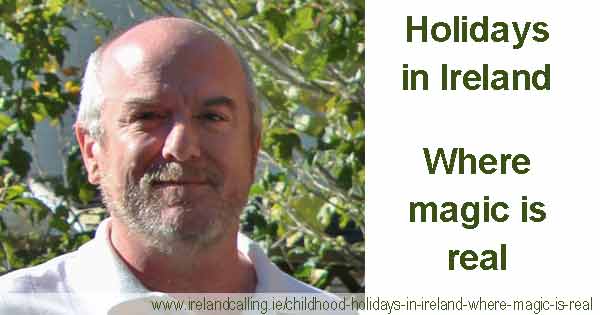
Eels would congregate in the blood-filled water by the hundreds and we hauled them in at will, keeping the bigger ones and selling them to the local hotels where the tourists would gobble them up with delight, unaware they had been pulled from the midst of a swirling mass of offal only hours earlier, knowing only that they were experiencing a “local delicacy” and sparing not even a moment to wince at the price tag. We’d line our pockets with the shillings we’d earned, destined for the till at the corner shop where my grandmother would send me every day to get her twenty Carroll’s and some hard candy.
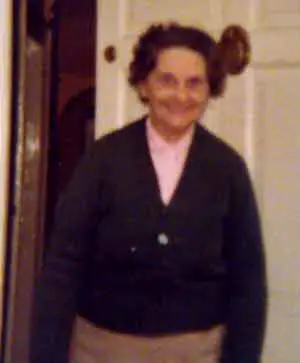
My fee for running the errand was the cost of a Choc Ice, tuppence at the time if memory serves, a creamy delicacy that beckoned me daily, more than one if the fishing was profitable and if it had been I ate the extras on the spot, relishing the mix of chocolate and ice cream that was so much tastier there than at home in Canada. I would arrive back at Granny’s, Carroll’s in hand, with only the one she paid for, unwilling to listen to the inevitable lecture about how I’d ruin my dinner if she’d seen how many I really had. Chocolate and ice cream are so much better in Ireland than anywhere else. Dad said it’s the milk, fresher and less tampered with than what we’re used to, hand delivered from the creamery up the road. Maybe that’s true I don’t know, don’t care either, taste is everything.
There must have been some truth to what he said because Irish milk tasted unlike any I’d had before or since. I used to wait every morning for the delivery, brought to the door by donkey and trap and driven by an elderly man who must have been at least two hundred years old, the lines on his face so deep I wondered if he hid things in them. His skin was leathery and his hands so big and calloused they seemed out of place, as though they’d been destined to dangle from the arms of someone twice his size. I liked him, liked feeding the old, worn out donkey a fresh apple for breakfast. More importantly he liked my grandmother, a lot, and every day he began his run at her house so that she could skim the cream off the top of the urns that lined the back of the trap. She liked him too and always made sure she was ready for his arrival with her hair done and a fresh slathering of bright red lipstick.
I remember walking into the kitchen one morning as she was getting ready. She had long hair, well past her shoulders and despite her age it was still as much black as it was gray. She was combing it carefully and it was the first time I’d ever seen it hanging loose and long, the tight bun I was used to making it seem much shorter. When I walked in she turned, looked at me and smiled. I discovered then that her perfect teeth were not her own and, in that particular instance, were not where I was used to seeing them. The effect was dramatic. I thought she looked just like a witch and wondered briefly if the old straw broom in the corner was less a cleaning tool and more a means of transportation. I loved my grandmother, immensely, but I could have done without seeing that.
They never married, my grandmother and the milkman, although I thought they should. I would like to tell you that my desire to see her remarry was altruistic, that I thought only of her but it wouldn’t be true, I wanted a donkey. Not that there was anywhere to put it. The house was tall but narrow and there was no yard to speak of other than a small concrete slab that led to the outhouse. There was never an indoor toilet as long as that place existed and you’ve never truly experienced discomfort until you’ve planted your naked rear end on that seat in the wee hours of the morning in late February, but the whole house was like that, old and antiquated. For a child used to central heating, hot water on demand and a working shower my grandmother’s house was lacking, it had none of those things. If you wanted heat you started a coal fire in one of the fireplaces that could be found in every room of the house, but that was rare. Coal cost money, money my grandmother was loathe to spend, money better spent on the turf needed to fuel the stove in the kitchen. It was a relic from the past, as old as the house itself, but it gave us a warm room in which to gather, a place to share meals and tell stories. Granny had lots of stories to tell, some of which I’m fairly sure were true. It also heated the water in the home, inefficiently and in limited supply. If you wanted a bath it required three or four trips to the bathroom with pots of boiling water to supplement the two inches of hot water you got from the pipes before it ran out, two inches it had taken the stove all day to produce.
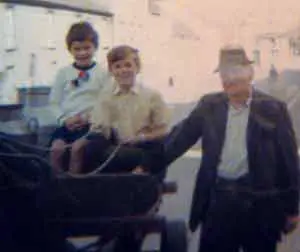
It didn’t take long, there was always water boiling from the earliest hours of the morning to the late hours of the night, you can’t make tea without it, or fill the hot water bottles at night to warm the icy beds before climbing in. I was a tea drinker back then, my grandmother’s tea, made with leaves rather than the standard Red Rose tea bag that had taken up permanent residence in the cupboard of our Canadian home. It’s an art form really, not so much the making of tea with leaves but the drinking of it, at least once you neared the bottom of the cup. Caution is required, a deft hand, the ability to remove tea from cup without making an unintended meal of the leaves at the bottom. Many evenings were spent picking the flavored shrapnel from my teeth long after the cup had been finished despite aggressive rinsing and more than one brushing. They’re insidious those damn tea leaves and often felt as permanent as a fresh tattoo, but learning the art was well worth it. My grandmother fancied herself something of a fortune teller and would stare intently into the bottom of the cup when you were done, pointing out certain patterns and outlining your future based on what she saw. For myself, fame and fortune always seemed to revolve around the necessity of doing my chores, always being mannerly and never, as she often said, being a “bold boy”.
I have many vivid memories of that old Irish row house, more even than I have from my own childhood in Canada where I grew up. Perhaps because it was so culturally different, a place where history and magic walked hand-in-hand down the narrow streets or through the graveyard in the centuries-old church across the road, past tombstones so ancient that the names of those once engraved there had long since eroded away, their once vibrant place on this earth erased by time. It was a place where old and new collided but co-existed, where the sight of a horse-drawn, brightly painted caravan was no less common a sight than a rusty old Ford was at home, and the caravans fascinated me.
“Bloody Tinkers,” my grandmother said when she saw them, “thieves and robbers.”
Tinkers, the Irish gypsy, with a reputation for being swindlers and con-artists but living a life that I felt somehow drawn to, a nomadic existence easily romanticized by the young boy I was. It seemed free to me, unencumbered by rules and regulations, cooking outdoors and leaving on a whim, like camping as a lifestyle and not just a cheap holiday. Besides, I liked horses.
I met them finally, once. When I was a teenager I purchased a membership at a golf club nearby, ten pounds for the year. Carved into the side of Slievenamon so carefully it seemed like a natural formation, a patch of perfect green land that quite coincidentally happened to look like a golf course, a place of such overwhelming natural beauty that I often found myself standing and staring in awe, or at least that’s how I remember it. It was only a few miles from Granny’s house, an impossible distance back home but in Ireland little more than a short walk, even with a set of clubs on your back. I strolled, contentedly, but soon found myself lost, a wrong turn taken somewhere along the narrow, unmarked country roads. Getting lost in Ireland is never a bad thing, the almost painful beauty of the place more than makes up for an extended walk, and there’s a smell, a scent of nature untainted that permeates the land. The Irish don’t notice it as much as the tourists do, the travelers who arrive there fresh from their lives of concrete and steel, nostrils filled with the carbon monoxide of too many cars, eyes jaded by too much gray and not enough green. It’s an adventure, especially if you ask for directions, often so convoluted and filled with local references that you end up being more lost than you were.
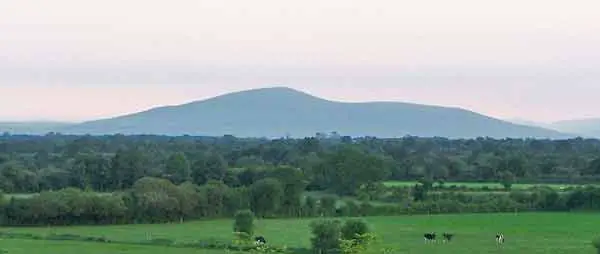
Nonetheless, directions were what I needed and I resolved to ask the first person I saw, hoping to find the wherewithal to filter out the wealth of extraneous information I was sure to get, a wishful and likely unrealistic expectation. I unexpectedly came across a gypsy encampment on the edge of a field and the painted caravans caught my attention immediately. Horses grazed in the field, children who hadn’t seen a bath in perhaps weeks played by the roadside and a group of adults sat around a small fire over which hung an old cast iron pot. My grandmother found her way into my head almost immediately, warning me to turn and run, filling it with ghastly images of my likely fate should I continue forward and reminding me of the many tales of gypsy horror she’d carried with her since she herself was my age, tales of children gone missing, taken forcibly, never to be heard from again. So, naturally, I walked right into the camp. The curiosity of my younger years had never been satisfied and the need to understand these people, their culture, remained strong.
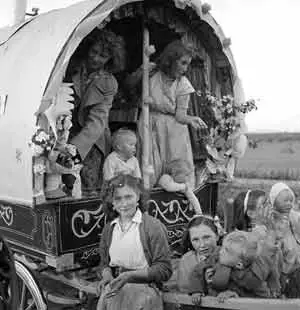
It was perhaps one of the most benign encounters I’ve ever had. One of the men offered to take me where I needed to go and I accepted without hesitation, visions of galloping through the Irish countryside bareback on horses that longed to run flooded my mind, golf clubs leaping from my bag as I bounced in rhythm, leaving a trail of bent steel on the ground behind me. That is until he pulled an old Hillman Hunter around from behind one of the caravans, a piece of the new world intruding on the fantasy I had long ago created for myself. The drive was pleasant as much as it was soul-crushing and we arrived without incident, to say I was disappointed would be like saying the Grand Canyon is just a small hole in the ground. I should have left it at that, should have taken the time to grieve alone and in silence, picked up the broken pieces of my dream and cast them aside forever, but after I arrived home and my grandmother asked how my day had been I did the worst thing possible, I told her. After she finished checking me for stab wounds I got the sort of lecture that makes history, a reaming of such magnitude that Vikings would have written songs about it, continued by my uncle when he got home and my father after that. My family were master lecturers. When my friends got in trouble they would get a good wallop and be back out playing within minutes. In my family you were lectured, a slow torture that could last for hours. A lingering, drawn out, guilt-inducing diatribe that left you longing for a good beating.
Church was often a cure for my wayward habits, at least in my grandmother’s eyes. We went every Sunday when we visited, even my father who rarely set foot in any religious institution, but this was his home and that was his mother, the choice was made for him the minute he walked through her door. As a rule I disliked church, a long, boring affair for a Protestant. It has always seemed to me that Protestants spend much of their time apologizing for no longer being Catholic and so we lengthen the service and the sermon as penance for the choice of an English king centuries earlier. It was different in Clonmel, I didn’t mind it so much. St. Mary’s church is living history, an imposing relic that has stood relatively unblemished for hundreds of years and whose graveyard holds the remains of those who perished long before there were golf courses, Hillman Hunters or Choc Ices. History aside I found the services amusing, a Protestant church in a predominantly Catholic village is rarely, if ever, blessed with a full congregation and the arrival of my family significantly increased the presence of the faithful, although the vast majority of pews remained empty and the choir almost always had us outnumbered.
My uncle was a baritone with a booming voice that overwhelmed the rest of the choir and my father would join in with his own more than passable voice from a pew near the front. My mother, God bless her, would do the same although her voice was not meant for singing despite the gusto with which she would attack whatever hymn came her way. My grandmother stayed home, listening to any number of services on the radio, singing along with every hymn while preparing dinner for whoever chose to stop by after church. By the time that happened I longed to be released from that house of religious fervor and join my friends down at the river or go to the cinema and catch a double-bill at the astounding cost of eight pence. I would eat my dinner with a shovel and ask to be excused, hoping not to be told that I had to stay, that Sunday was family time and a day to be shared together. Most of the time I was released, if only to rid the house of my mopey attitude and allow the adults to listen to service number five on the radio in peace. Little did I know at the time how much my father longed to join me, to grab a rod of his own and go in search of the perfect speckled trout, to escape the confines of the kitchen, to do the things he hoped to do before the trip began and, most of all, to avoid the torture of service number six.
Despite the lectures, and with my bad habits I got a lot of them, I was blessed to have the family I did. Most of all I was blessed that they were Irish and that my parents, who emigrated in the fifties, never lost their connection to the old sod, bringing us back there whenever they could, usually when the loans they had taken out for the last trip had been paid off. To grow up experiencing another culture, another country, is a gift, but when that country is Ireland the gift becomes priceless. If you’ve been there you know what I mean. It starts even before your plane lands, that first glimpse out the window when you look down on a living postcard, when you understand that God himself took extra care in its creation and when you realize that you haven’t taken a breath since the first moment you saw it. It bursts at the seams with history and tradition, it is bathed in legend and folklore and it calls to you when you stand on its soil. It’s a place of pixies and fairies, elves and leprechauns, ghosts and banshees that are never seen but often glimpsed in the corner of a wishful eye. Maybe I only assume that everyone sees it the way I do, but everyone I’ve ever known has said the same thing and my mind can’t grasp the possibility that it could be seen any other way.
I like to think that the connection I have is more than just visual, that the impossible beauty of the country is just a bonus and that the bond I have with it goes far beyond that first glimpse out a window at thirty thousand feet. I want to believe that the roots I have there are permanent and simply extend as far as I need them to, allowing me to live thousands of miles away yet keeping me connected and welcoming me home each time I return, pulling me back to a land where magic is real.
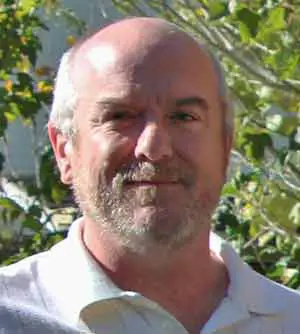
Born and raised in Montreal, currently living in London, Ontario. I spent my childhood bouncing back and forth between Canada and Ireland while feeling equally at home in either place but always with the sense that Ireland was where I was meant to be. At the age of fifteen I was shipped off to boarding school at The King’s Hospital College, Palmerstown, Dublin, and quickly established myself as the one most likely to cause trouble. I went home to Canada briefly but returned to Ireland at the age of nineteen, acquiring a prestigious position at a newsagent’s near the docks, Desmond’s, where I learned to value the combination of a good cup of tea and a Nunch bar. I lived for a time in luxurious accommodations at 1 Ranelagh Ave., a fine place, the “Dangerous Building, Stand Clear” sign out front notwithstanding. I eventually returned to Canada once again, obtaining a B.A. (Hons.) in English Language and Literature from The University of Western Ontario, got married and had three kids, all of whom take after their mother…..thank God! I’ve written one book, self-published, entitled “The Life And Afterlife Of Edward King” and am currently working on my second. Writing is my passion but I write what I feel at any given moment and do not confine myself to a particular genre, although Ireland is always calling.
Tell us what your Irish heritage means to you
[contact-form-7 id=”32460″ title=”Heritage”]
heritage.html